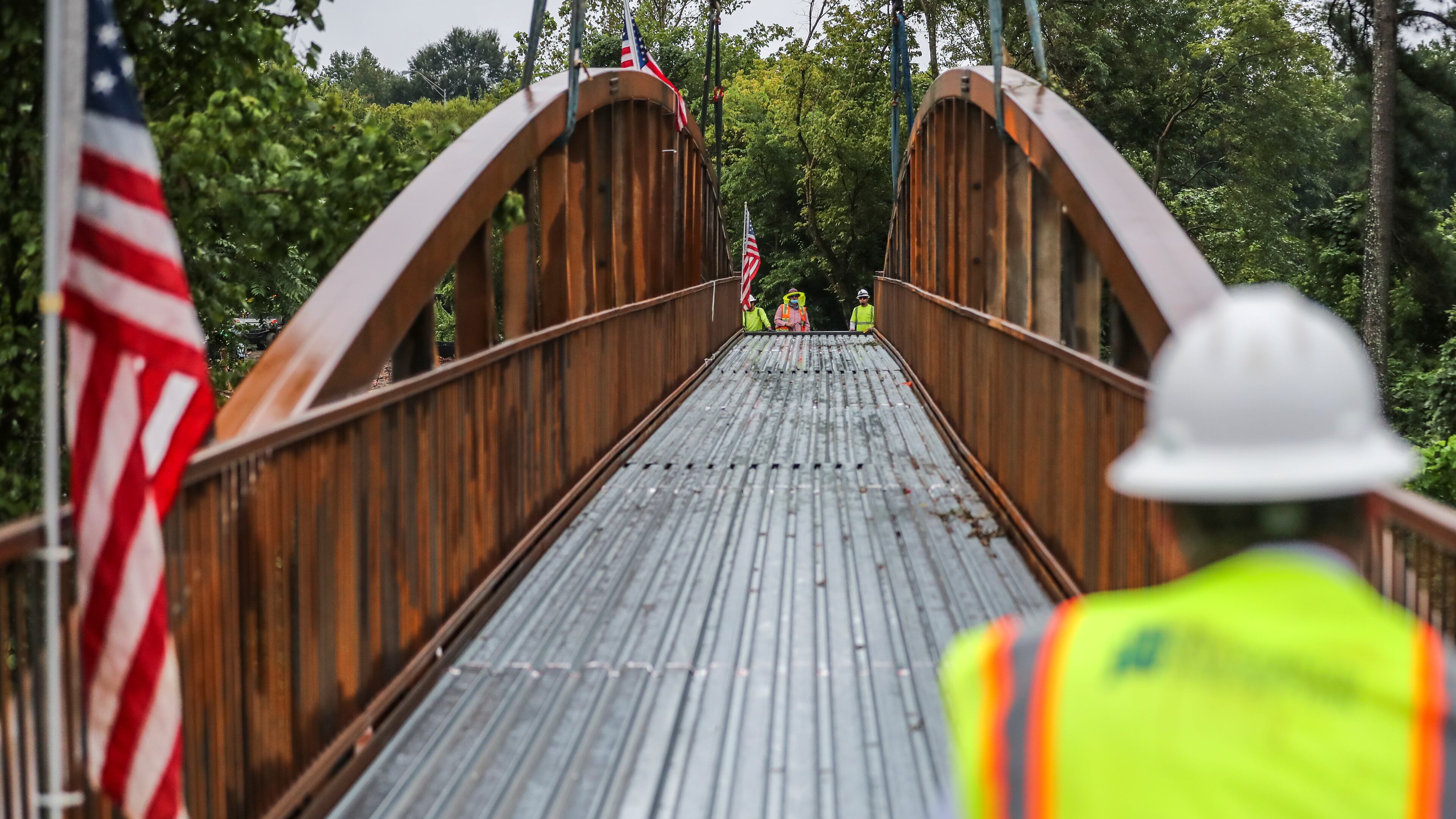Opinion: Democrats try a familiar recipe on infrastructure. But it may not work.

Even as infrastructure talks between President Biden and GOP Senators ran aground this week, House Democrats were bringing forth an old-style legislative plan on Capitol Hill in an effort to gain Republican support.
It felt like the old days as a U.S. House committee added 133 pages of local road, bridge, and transit projects to a $547 billion transportation bill, which Democrats hope still might provide the outlines of an infrastructure deal.
This new measure contains 1,473 home state items worth over $5 billion — some might call it pork — including 38 transportation projects for Georgia.
“I firmly believe that these projects will encourage economic development,” said U.S. Rep. Sanford Bishop, D-Albany, who has nine projects from his district worth $18.7 million in the bill.
But a big highway bill stuffed with local projects hasn’t been approved in 16 years on Capitol Hill, since a Republican Congress in 2005 backed a package with 5,173 home state earmarks, featuring over 200 projects for Georgia.
That 2005 bill doled out money for construction work on Georgia 400, pedestrian safety improvements on Buford Highway, money to improve the I-285/I-20 interchange, HOV money for I-75 and I-575, and more — and won the support of every single Georgia lawmaker.
But can that kind of strategy still work in the hyper-partisan political environment of 2021?
“There’s certainly evidence that parochial projects helped grease the skids for securing votes for broad national legislation in the past,” said Sarah Binder of the Brookings Institution.
“I still think it’s possible to buy-up the votes for a bipartisan bill using the earmark strategy, at least in principle,” said Matt Glassman, a senior fellow at Georgetown University’s Government Affairs Institute.
But Glassman argues the recent nationalization of elections for Congress has changed the dynamic somewhat, noting how “local projects are less likely to save you if the trade-off is that you have to vote against the national party position.”
While every Georgia Democrat submitted infrastructure requests, only two Georgia Republicans requested projects in this House transportation bill: U.S. Rep. Buddy Carter, R-Pooler, and U.S. Rep. Barry Loudermilk, R-Cassville.
Despite such GOP reluctance, Georgia has a long history of getting infrastructure help from the feds — it started back in 1794, when the Congress approved the placing of navigation buoys in the Savannah River and St. Mary’s River, plus various post-roads in the state.
But for many Republicans in Congress in 2021, this infrastructure effort is not worth supporting.
“We must end wasteful Washington spending,” said U.S. Rep. Rick Allen, R-Evans.
State Democrats say money to cut down on highway gridlock and improve transportation in the state is definitely not a wasteful endeavor. But they face an uphill fight to get Republicans on board in Congress.
Jamie Dupree has covered national politics and the Congress from Washington, D.C. since the Reagan administration. His column appears weekly in The Atlanta Journal-Constitution. For more, check out his Capitol Hill newsletter at http://jamiedupree.substack.com


